
7 minute read
Managing burnout
from OT April/May 2023
by TheAOP
Burnout is the WHO-defined “occupational phenomenon” that has the potential to drive us to exhaustion. Here is what you need to know overwhelmed, trapped, defeated, detached or alone, having a cynical or negative outlook, experiencing feelings of self-doubt, and procrastinating or taking longer to get things done, to the list of common signs.
Mental Health UK also emphasises that burnout is not something that goes away if ignored – in fact, it is likely to worsen if the underlying issues aren’t addressed.
Advertisement
DID YOU KNOW?
One in five people feel unable to manage stress and pressure in the workplace
(source: Mental Health UK) feelings of overwhelm that you might have about completing things that seem unmanageable Use self-help cognitive behavioural therapy (CBT) techniques: the NHS has a page that can give further information on how CBT might be beneficial to you Speak to someone: in the first instance, it is likely to be friends or family that you turn to to discuss how you are feeling – but as burnout is work-related, speaking to colleagues or your manager about workload and particular pressure points is the only way to address what you are dealing with head-on. Mind, the mental health charity, also lists advice for avoiding and dealing with burnout. They include: Making sure you get enough sleep
Ignoring the signs could “cause further harm to your physical and mental health in the future” and could lead you to “also lose the ability and energy to effectively meet the demands of your job, which could have knock-on effects to the other areas of your life,” the charity said.
Finishing work on time
Ensuring you take all your annual leave
Taking time off while experiencing burnout, rather than trying to power through
Asking for help.
If you are an employer or practice owner who is mindful of the impact of burnout on staff, Mental Health UK advises creating a wellbeing plan, which can be downloaded from the charity’s website, and sharing it with the team. A resource to help create a stress risk assessment, which could avoid instances of burnout occurring, can also be downloaded from the same place.
In our upcoming workshop, we will focus on three areas: identifying symptoms, preventing, and recovering from burnout.
Burnout, the WHO goes on to say, is defined by “feelings of energy depletion or exhaustion,” “increased mental distance from one’s job, or feelings of negativism or cynicism related to one’s job,” and “reduced professional efficacy.”
Mental Health UK adds feeling helpless, or of being
With the accepted definition unequivocally tying burnout to work and workplace pressures, the AOP will be running a webinar on 16 May, entitled Burnout to balance: recognise, prevent and recover from burnout
Ahead of the webinar, here are three tips from the NHS on managing stress and burnout:
Split up big tasks: this will help break down
To identify symptoms, we can pay attention to physical and emotional signs, notice changes in our behaviour, and keep a stress diary in order to help recognise the patterns that may lead to burnout.
To prevent burnout, practice regular self-care (for example, getting enough sleep), set boundaries, prioritise your workload, and build a strong support network.
To recover from burnout, take time off to rest and recharge, seek professional help and identify lifestyle changes to reduce stress.
Burnouttobalance:recognise,preventand recoverfromburnout, will take place on 16 May at 1pm: www.aop.org.uk/events
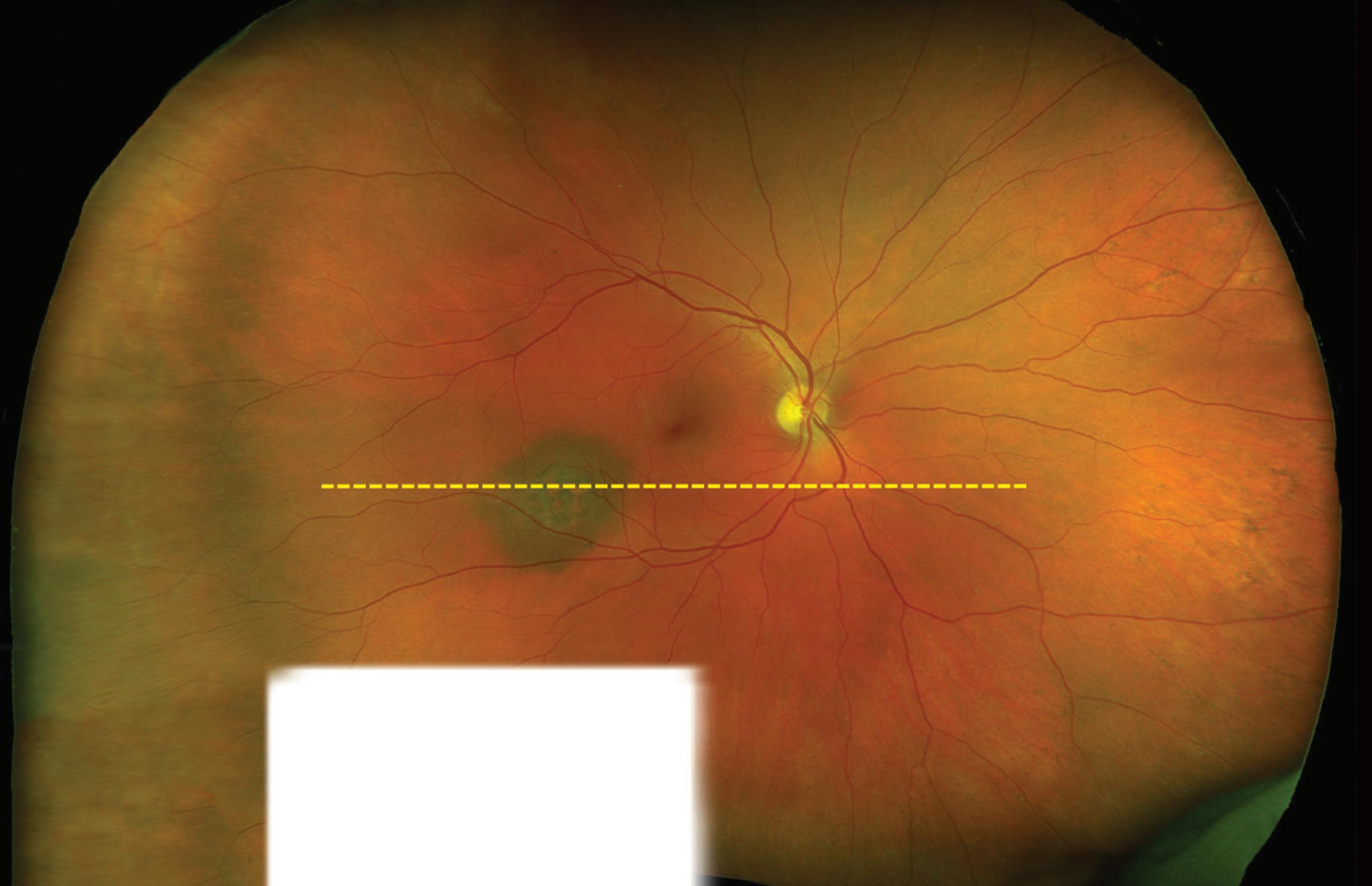

Individually Wrapped Pre-Moistened Towelettes
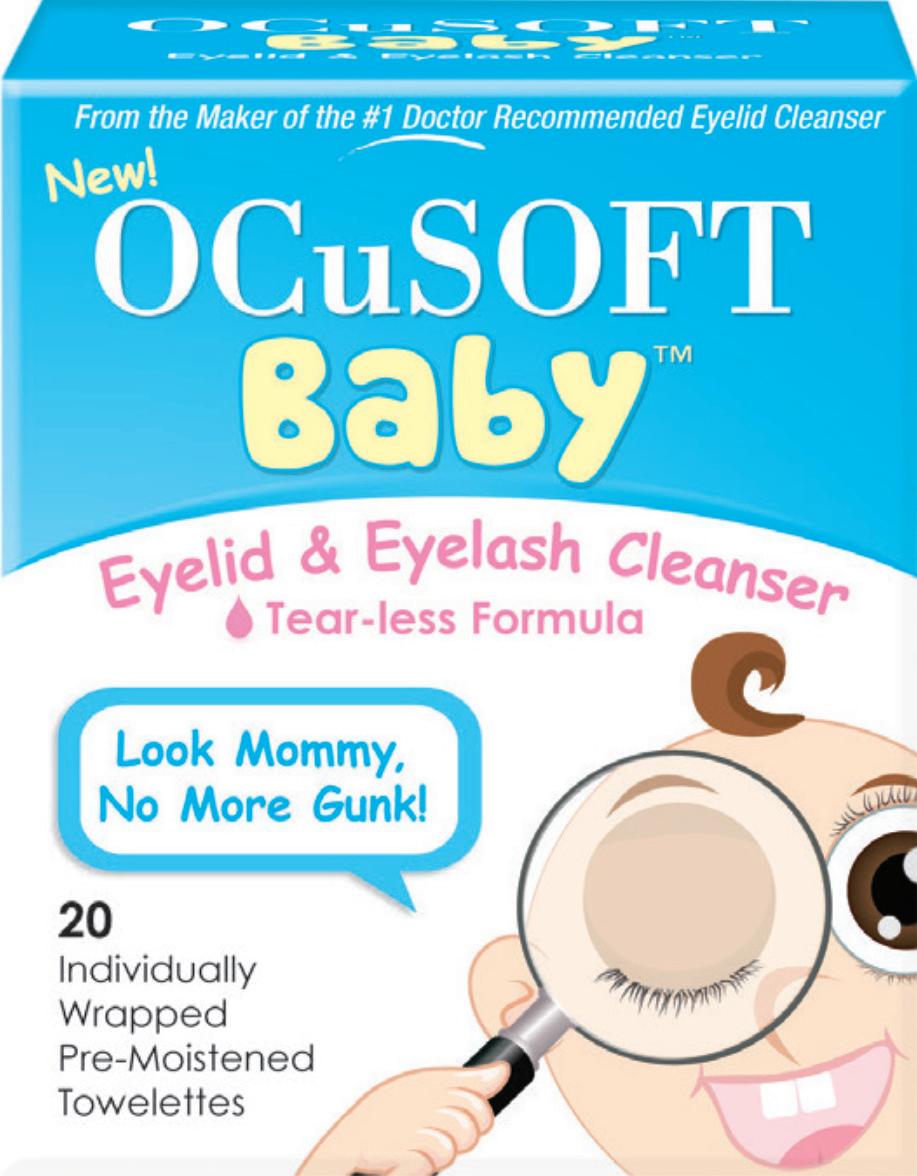
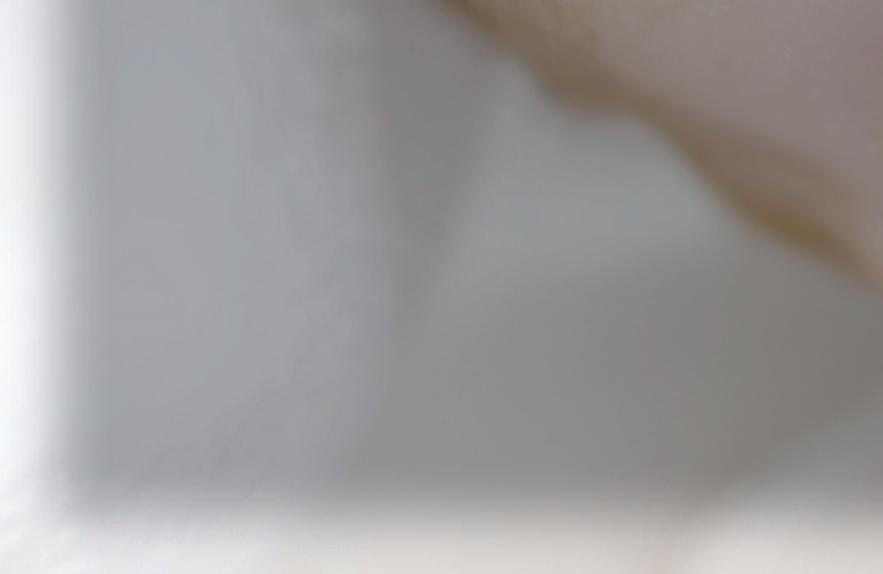
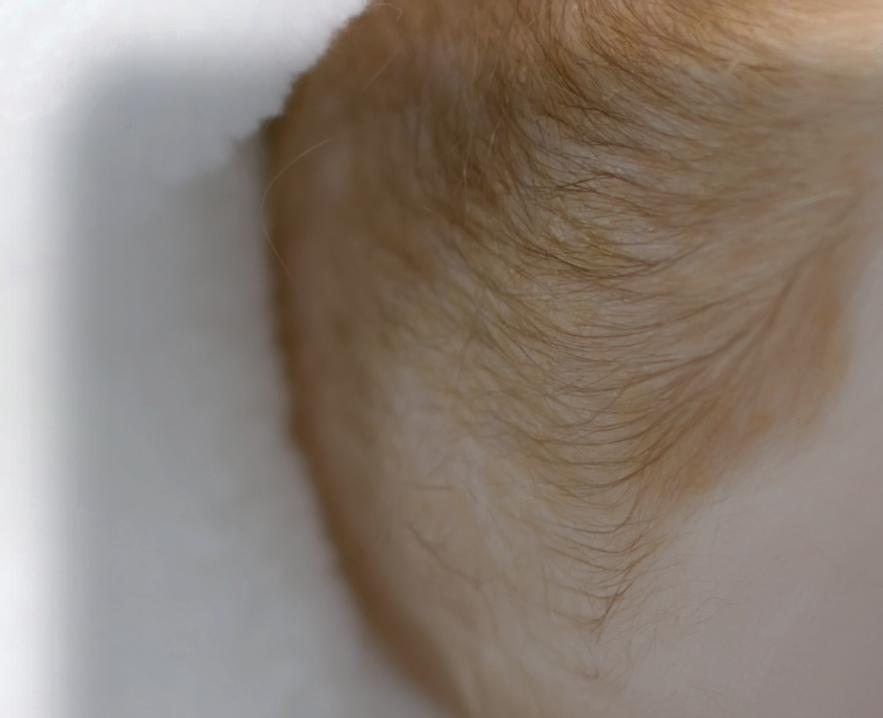

From green spaces to flexible working and tackling discrimination, OT explores how optometrists can foster positive workplace environments today


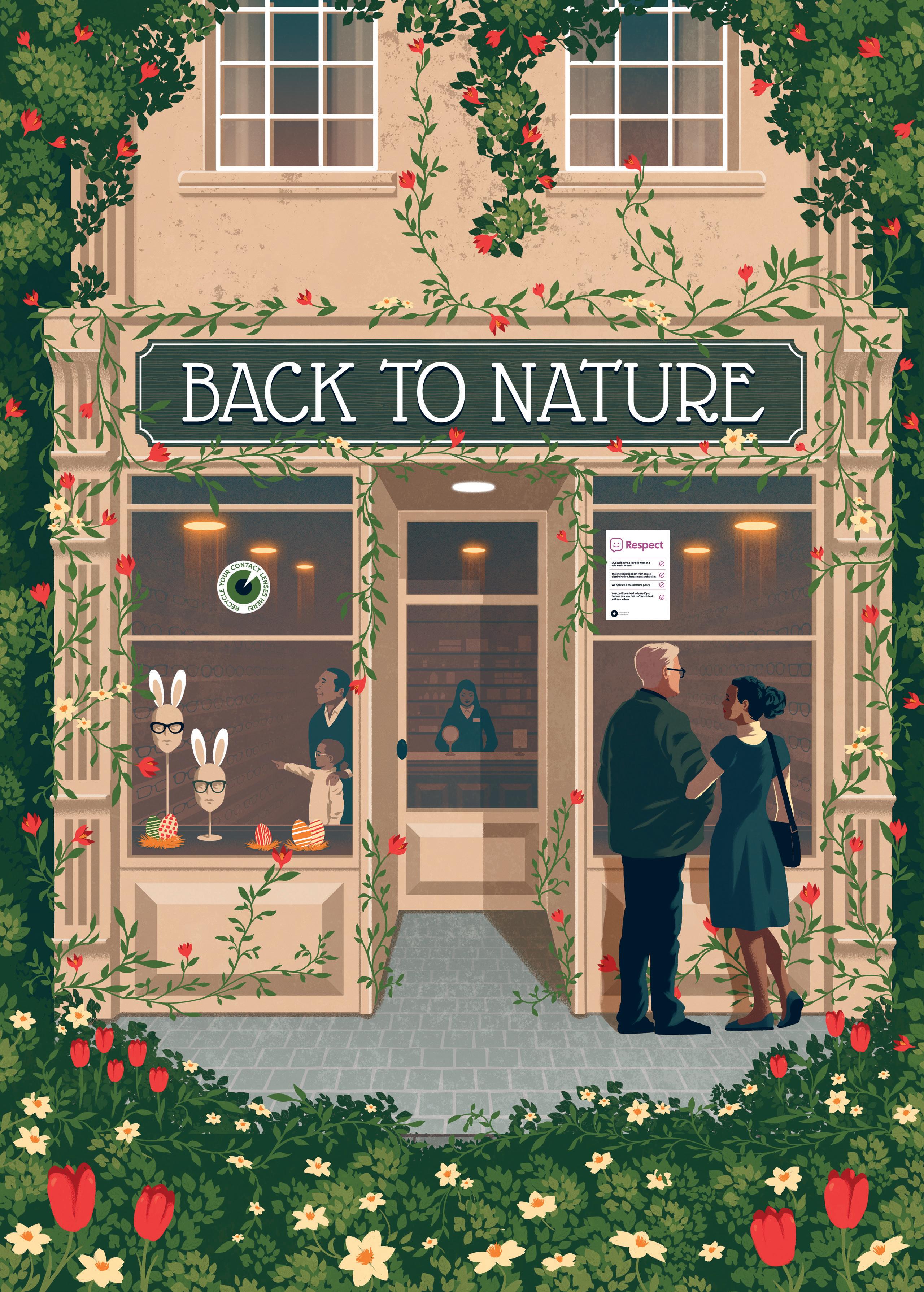
When Dr Peter Frampton was growing up in Brisbane, Australia, he remembers the day an ancient gum tree was cleared to make way for a new school football pitch.
Frampton recalls looking around and thinking his reaction was different to that of his peers.
“All of us boys were standing around watching this tree go down and as it fell, the others cheered,” he said.
“I felt really upset. It offended me to see this magnificent tree, that had been there before colonisation, come down,” Frampton observed.
This formative sense of respect for the environment is now imbued in the practice that Frampton owns in Northumberland.
Aaron Optometrists recycles contact lenses and blister packs, and donates second-hand spectacles to charity. The practice uses repurposed packaging for deliveries, alongside corn starch and paper packaging that can be composted.
When Frampton is not cycling around town, he uses his practice’s electric vehicle, which is charged from solar panels on the roof of his home. He thinks of single-use contact lenses as daily recyclables, rather than daily disposables.
The Big Picture In Business
Frampton told OT that sustainability informs all the decisions that he makes as a business owner. A practice mantra that he repeats to staff is: “Unscrupulous profit today means cost tomorrow.”
This principle is true both from a customer loyalty perspective and an environmental standpoint, Frampton emphasised.
“If you don’t think about the upshot of what you are doing, there will be a cost further down the line,” he shared.
Times have changed since Frampton completed his first degree in environmental studies in Brisbane. “Suddenly being an environmentalist has some level of kudos. During the 80s, it wasn’t like that at all – people thought I was just some weird dude,” he said.
Alongside the sustainability initiatives at Aaron Optometrists, Frampton makes an effort to engage with patients on the issue. He organised a practice visit for 18 members of the Ashington (St Andrew’s) Brownie Unit to learn about difficult-to-recycle plastics. Frampton also contributed written answers to questions about sustainability from a nine-yearold patient ahead of her meeting with a local MP.
During COVID-19, when Aaron Optometrists was operating on an appointment-only basis, patients could still tap on the door and hold up their bag of used contact lenses for recycling.
Frampton highlighted that there are limits to the impact a single practice can have. “While always striving to source ethical product, it is difficult, as a single practice with finite resources and funds to absolutely authenticate the environmental provenance of every product,” he shared.
Now that Aaron Optometrists is part of Hakim Group’s family of independent practices, Frampton is optimistic about the potential to catalyse broader change within the profession.
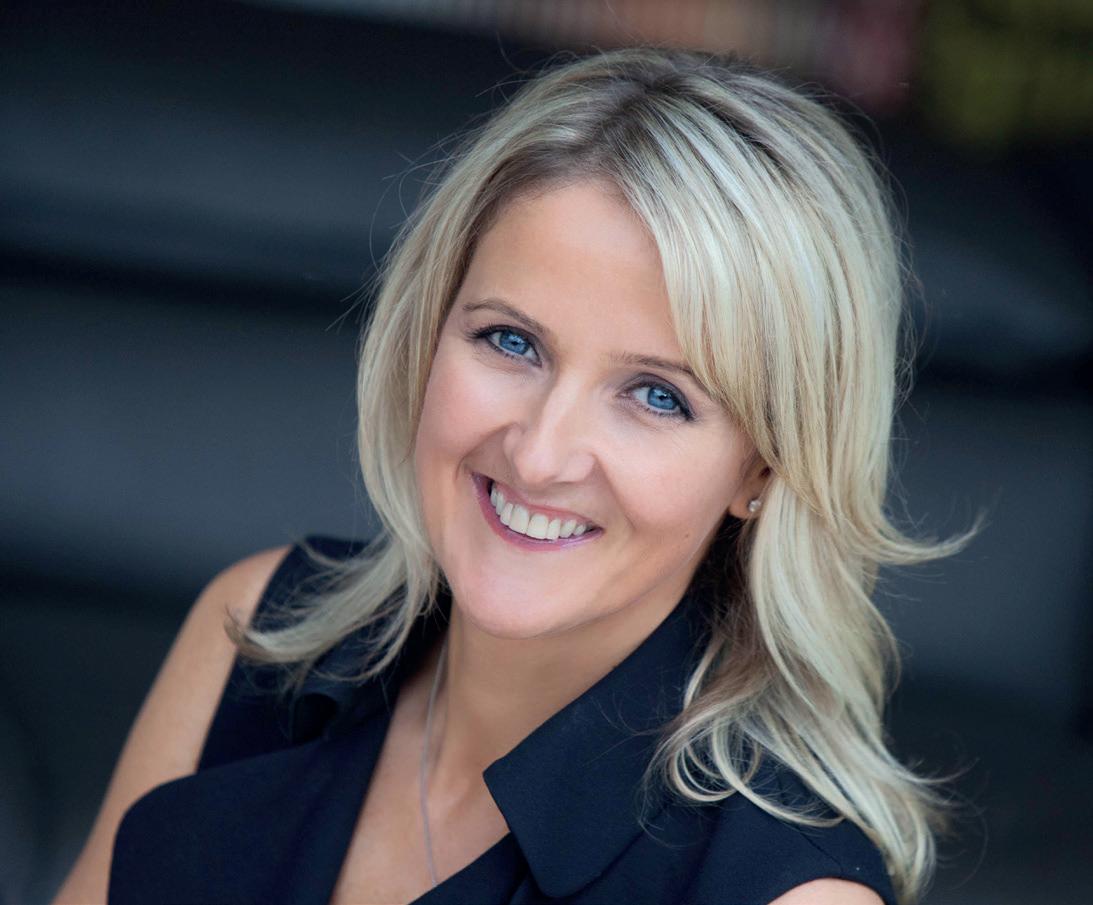
“With Hakim Group’s commitment and power base we can do a lot more,” he said. “Everyone should try and do what they can. I think that sometimes it is too easy to close your eyes and think that it is too big a problem to contemplate. It is not – we can all help,” Frampton shared.
“Just start; achievable small steps lead to seismic change. Environmental awareness must define your practice ethos,” he emphasised.



Spearheading Change Among Optical Suppliers
In March, the Optical Suppliers Association’s sustainability committee launched its Green Charter, outlining a “practical and achievable roadmap” for optical businesses to reduce their environmental impact.

Founder and chair of the sustainability committee, Jayne Abel, told OT that the Green Charter began with a growing awareness of climate change and a sense of urgency for every industry to take action. “Many businesses are willing but just don’t know where to start,” she said.
Optical suppliers across all sectors can sign up to the charter – from frames and lenses to practice equipment and health services. Abel observed that there has been an “accelerated interest” in sustainability within the optical supplier industry over the past six months.
“Consumers are demonstrating an enduring appetite for sustainable products in other sectors and there is evidence that wearers seeking out ecofriendly eyewear will become an established and growing market share over the next two years.”
Abel emphasised that it is no longer enough to talk about sustainability.
“We need to act now if we are to become a key player in instigating a positive change,” she said.
Abel, who is the co-founder and chief executive of British eyewear company, Eyespace, shared that she has “road-tested” many of the actions outlined in the charter within the Midlands-based business.
“They have been positive, satisfying and completely compatible with day-to-day operations. It starts with small incremental changes, but they add up and together we can all make a big difference and feel good about how our businesses are treating the planet,” she said.
She added that incorporating sustainability can have a positive impact on the work culture, by helping to attract and retain progressive thinkers within a business.
Abel shared that over the past two decades, the effects of neglecting the environment have begun to be felt in “undeniable ways.”
This has caused her to reflect on what will be passed on to her younger family members and colleagues.
“The effects of climate change are accelerating and will become a part of daily life in ways we can’t yet conceive, but we can substantially lessen their impact during our working lives. We can also evolve the industries we work in to become vehicles to a solution,” Abel highlighted.
Within optometry practices, Abel highlighted simple wins can be made by switching to renewable energy sources, reducing waste and integrating sustainable products through the business.
Practices can choose to review their product portfolio and assess whether they are selecting the most environmentally-conscious suppliers.
Abel added that checking for independent certification, such as ISO standard accreditation, is important to avoid greenwashing. “For example, carbon offset initiatives help repair and restore the planet but are not a solution to unsustainable supply chain processes,” she explained.
Abel shared that suppliers are launching and refining more sustainable service lines – such as frames and cases made with bio-acetates or recycled materials.
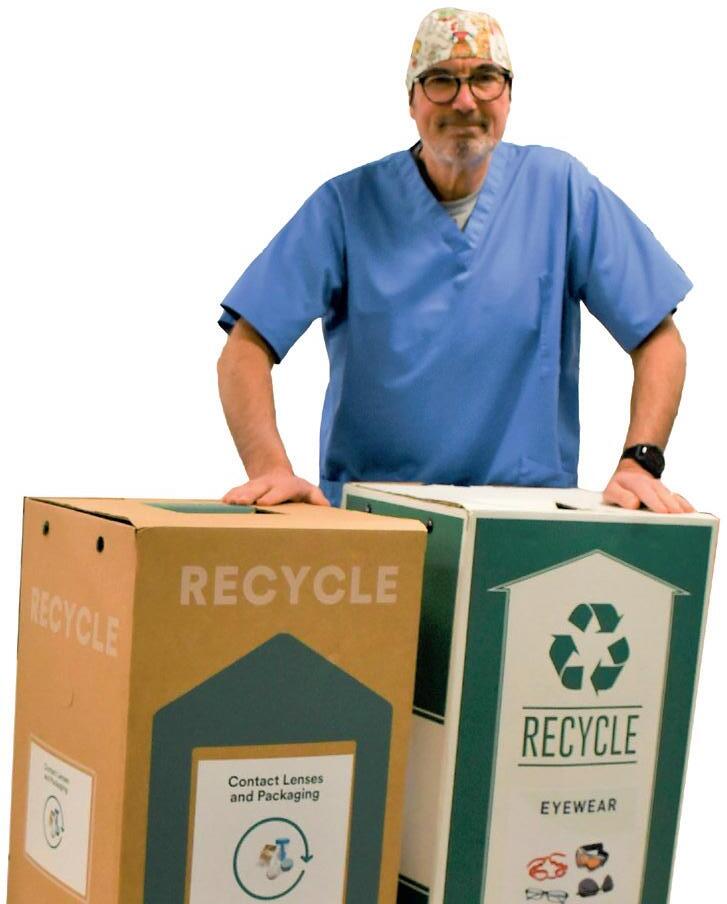
“Ask your suppliers what sustainable products and services they offer; the more they are asked, the more they will grow these parts of their business,” she recommended.
Lastly, Abel highlighted that consumers and businesses need to become comfortable with a minor surcharge on sustainable products – which is negligible when viewed in the context of inflationary pressures.
“It has quickly become the norm for customers to pay for a bag at a supermarket and not think twice about it and this is much the same,” she said.
“Sustainable products and packaging are more competitively priced than ever and will become more so, but only if we increase the volumes we buy,” Abel concluded.
The Benefits Of Green Spaces
When consultant medical ophthalmologist, Dr Nima Ghadiri, was working as a doctor in Auckland, New Zealand, he became increasingly aware of the impact of green spaces on his wellbeing.
The hospital wards and cafeteria had a view of a large lake where Ghadiri’s colleagues would sometimes go windsurfing after work.
“It affected me in subtle ways that I couldn’t quite quantify then. I gradually realised what I was feeling and noticed the reduction in stress from being able to see nature, water and sky,” he said. Moving between different hospitals in the UK as he completed his training, Ghadiri chronicled his favourite healing gardens through a photo essay published on The Guardian website (bit.ly/3Zcoys8).










